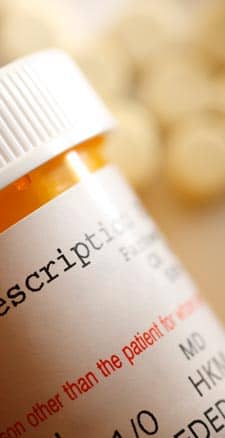What is Dexedrine?
Dexedrine is the brand name for dextroamphetamine, a potent stimulant. Dexedrine is prescribed for the treatment of attention deficit hyperactivity disorder (ADHD) and narcolepsy (falling asleep at inappropriate times without any control).
In the United States, Dexedrine is classified as a Schedule II drug under the Controlled Substances Act. A Schedule II drug means that it has a recognized medical use but has also a high potential for abuse and addiction.
Side-effects
There are serious health concerns caused by Dexedrine abuse, including:
- Restlessness and insomnia
- Headaches
- Loss of appetite
- Anxiety
- Blurred vision
- Increased blood pressure
- Chest pain
- Aggression
- Dizziness
- Hallucinations
- Delusional thoughts
- Seizures
Dexedrine Information on Abuse
Over the years Dexedrine and other stimulants have seen an increase in non-medical use. These are used for the following reasons:
- Increase academic achievement.
- Boost athletic ability.
- Lose weight.
- Combat fatigue.
- Get high.
Dexedrine comes in pill, capsule and tablet form and is taken orally. However, to get high, users may snort or inject it to get an intense high. These methods can bring about addiction faster and have serious health risks.
These are a few of the health risks:
- High blood
- Cardiovascular problems
- Headache,
- Panic attacks
- Suicidal or homicidal thoughts
Dexedrine abuse may lead to physical dependence in a relatively short time.
Signs and Symptoms of Abuse
Taking this medication as prescribed may have some possible side effects like restlessness, trouble sleeping, tremors, and weight loss. More severe side effects may suggest abuse. Here are some of these effects:
- Rapid and irregular heartbeat
- Chest pain
- Difficulty breathing
- Complete loss of appetite/severe weight loss
- Rapidly changing mood
- Aggression/hostility
- Hallucinations
- Paranoia
- Weakness, dizziness, and fainting
- Seizures
Some physical dependencies may occur even when a person uses Dexedrine as prescribed. When a person abuses Dexedrine, especially at higher doses, the physical dependencies may occur faster.

Dexedrine Information: Withdrawal Signs
Although not life-threatening, unpleasant withdrawal symptoms may occur when a person stops using stimulants. The mental and physical effects of stimulant withdrawal will produce the opposite effect of the drug. That is that the drug which provided feelings of enhanced mood and energy will cause feelings of depression, low energy, and apathy in withdrawal. Some symptoms may be present for up to 5 months.
Stimulants like Dexedrine have similar withdrawal phases:
- At first, the person may feel anxiety, sadness, agitation, and an intense craving for the drug.
- Afterward, a feeling of exhaustion may kick in both mentally and physically, insomnia may be present and a worsening feeling of depression.
- The next phase may include an increase of symptom severity which may last several days to several weeks. This is accompanied by a craving for the drug.
Dexedrine Information: Description
Capsules
Dexedrine in 10mg is a brown-capped, natural-coloured body taper-end capsule, with 2 shades of orange pellets, monogrammed “3513” on the cap with “10 mg” and “SB” on the body in white ink. Dexedrine 15 mg is identical but with the inscription “15 mg” and “SB” on the body in white ink.
Tablets
Dexedrine tablets come in 5 mg dosage and are orange, round-cornered, equilateral triangular-shaped, scored, compressed tablet engraved with the Paladin shield logo.
Health Canada Advisory
Health Canada has issued restrictions concerning the use of drugs in the management of ADHD. Read the full issue here: Health Canada.





